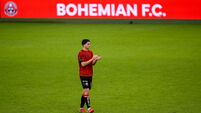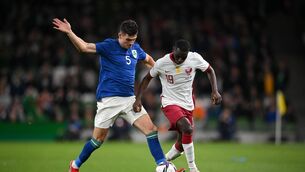Greeks cash in on blank Czechs
Greece snatched an unlikely win over the Czech Republic to turn the European Championship of 2004 on its head with a "silver goal" fifteen minutes into extra time.
Greece, out-played and out-classed for long periods by the clever Czechs, showed remarkable reserves of courage and commitment to qualify for the final of the tournament against host nation, Portugal, on Sunday in Lisbon.














